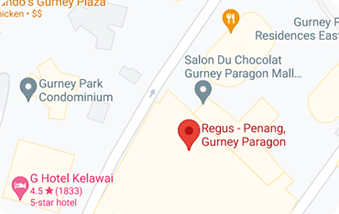Food Supplement Registration in Malaysia - Overview
Food product registration in Malaysia is overseen by the Malaysian Ministry of Health (MOH) to ensure the safety and quality of food products available in the market. In Malaysia, there is a distinction between “foods,” which are regulated by the Food Safety and Quality Division (FSQD) of the Ministry of Health (MoH), Malaysia and “drugs,” which are regulated by the National Pharmaceutical Regulatory Agency (NPRA) Malaysia of the MoH, formerly known as the National Pharmaceutical Control Bureau (NPCB). The regulation of food quality and integrity in Malaysia is governed primarily by the Food Act, 1983 (“Act”); it is a subsidiary legislation, the most pertinent of which is the Food Regulations, 1985 (“Regulations”).
However, it may sometimes be difficult to determine whether a product should be classified as “food” or “drug”. Such ambiguous products are termed “Food-Drug Interfase (FDI)” products as per Malaysia food regulation. To ensure food safety in Malaysia and to regulate FDI products with a better definition, the NPRA and the FSQD formed the Committee for the Classification of Food-Drug Interphase Products in 2000.
Generally, an FDI product is a combination of “food ingredients” and “active ingredients” meant for oral consumption. Examples of food ingredients are fruits, vegetables, meat, poultry, milk, cocoa, and cereals. Examples of active ingredients are vitamins, minerals, herbs, enzymes, probiotics, prebiotics, amino acids, peptides, coral calcium, fatty acids, collagen, chia seeds, astaxanthin, lutein, and other ingredients that are not traditionally consumed as foods. In fact, the products may be presented in multiple forms, like powders, liquids, and semisolids, such as gel/jelly, chewable tablets, drops, granules, etc.
Meanwhile, a food supplement is defined as a product that can be used to supplement a diet and to maintain, enhance, and improve the health functions of the human body. It can be presented in small unit dosage forms (to be administered) such as capsules, tablets, powders, and liquids and shall not include any sterile preparations, i.e., injectables, eyedrops.
Prior to the submission of an application for food product registration in Malaysia, the manufacturer may have to apply for product classification. If they are not sure of the product category to classify their food product, Freyr, with its expertise in understanding the Food Act and regulations of Malaysia, can assist them with food product registration and classification.
Food Supplement Registration in Malaysia - Freyr Expertise
- Food Product Classification.
- Formula Review/Ingredients Assessment.
- Label and Claims Review.
- Compilation, Gap Analysis, and Submission of Dossier to the NPRA Malaysia.
- Legal Representation (LR).
- Local Labelling Support and Label Design Support.
- Translation Support.
- Regulatory Intelligence (RI) Report.
Food Supplement Registration in Malaysia - Freyr Advantages
- End-to-end Regulatory consultation for food product registration in Malaysia.
- A qualified team of experts with hands-on experience across all categories of foods like health supplements, dietary supplements, nutraceuticals, Health Functional Foods (HFFs), health functional beverages, Foods for Special Dietary Use (FSDU), etc.
- Support in region-specific Regulatory activities and Food Safety Act in Malaysia.
- An extensive partnership network across the globe.
- A strong relationship with various Health Authorities (HAs).
- A structured and cost-effective approach to ensure speed to market for products.

